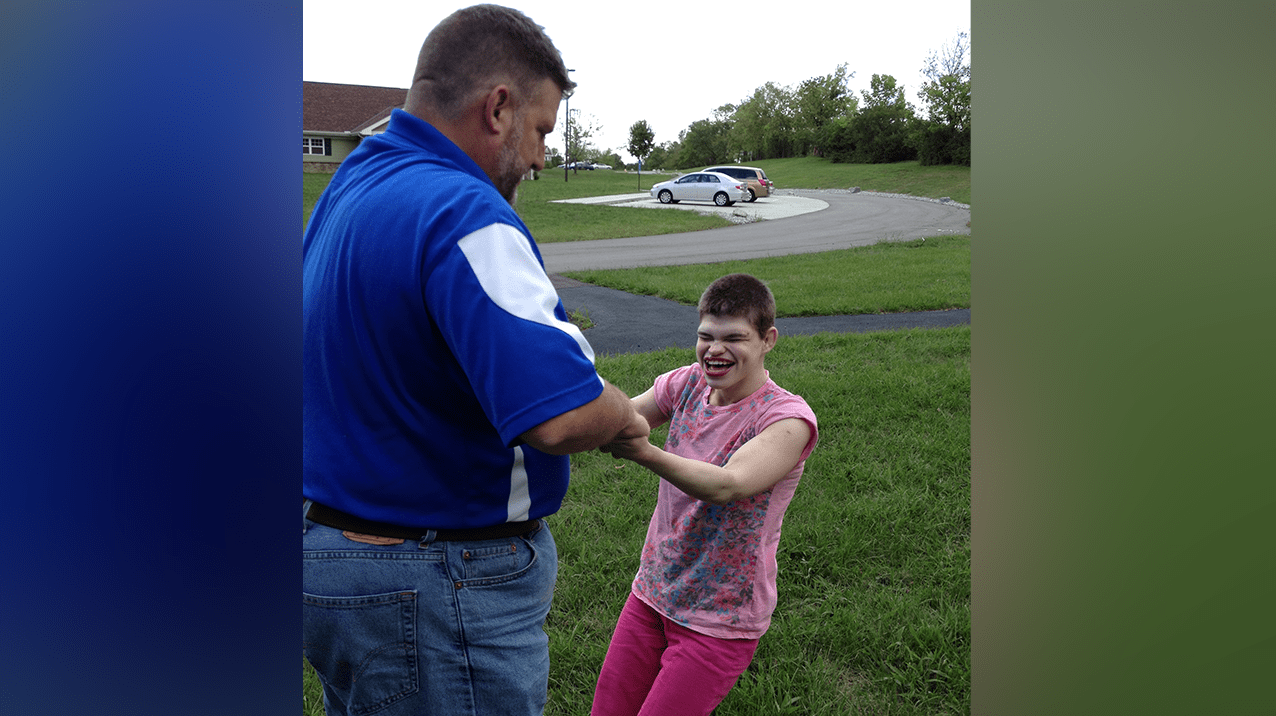COLUMBUS, Ohio (WCMH) – After a developmentally disabled woman had her throat slashed at an Ohio nursing home, her father is calling for state lawmakers to pass a bill he believes will help families keep their loved ones safe.
House Bill 465, known as Lauren’s Law, would require developmentally disabled facilities to install cameras in residents’ rooms at the request of the residents themselves or their guardians or attorneys. It would also pay family members who choose to care for their loved ones at home through a Medicaid waiver program roughly the same as those working in intermediate care facilities.
Judge blocks Ohio Speaker’s access to campaign funds
The bill is named after a 36-year-old woman with developmental disabilities who said her father “fought like crazy” to keep her at home and out of a nursing home, but that it was not feasible. She was repeatedly abused and neglected during her 30 years in nursing homes, her father said.
“The system is willing to pay institutions and group homes to do this work, yet the institutions and group homes neglect and abuse these people,” said Greg Carter, Lauren’s father and an advocate. “As it stands, families are being tossed aside and told we’re unsafe. Paying family members to be caregivers is a dangerous precedent.”
In 2021, while Lauren was staying at Takoda Trails in Fairfield, her throat was slashed, leaving a 4-by-1.5-inch gash that required 12 stitches. Her father said all of the medical personnel who treated Lauren said they believed it was done intentionally. One employee who did not cooperate with the investigation was fired, but no one was held legally responsible.
“I cannot even imagine the pain and anguish that continues to befall Lauren and her family,” said Rep. Sarah Carruthers (R-Hamilton), the bill’s sponsor. “Lauren’s Law is a step in the right direction to help families who desperately need better care for their loved ones.”
How much money do you need to make to be in the top 5% in Ohio?
Her father said Lauren was left alone on a bus for hours in the summer heat on two other occasions while staying at the same facility. The first time was in July 2011, when she was left alone on the bus for more than an hour. She was found drenched in sweat and overheated. In July 2022, Lauren was left alone on the hot bus again for five hours. Greg Carter said staff downplayed the incidents.
“The actual investigation is going to prove time and time again that the original statement was a little weak,” Greg Carter said. “There’s video evidence that shows she was left on the bus for five hours. Why would the original statement say she was left on the bus for three hours?”
A serious abnormal event is defined as an event reported to have a detrimental effect on the health and safety of people with developmental disabilities. Lauren experienced 16 such events during her time at the care home.
“Twenty people spent 30 years in the same facility and nobody tried to stop it,” Greg Carter said. “Nobody stopped it, nobody from the county called me and said, ‘Mr. Carter, we have concerns that your daughter isn’t going to survive.’ They just accepted it. So there’s no accountability, no repercussions, no consequences for those involved.”
Survey finds Ohio has one of the worst economies in the country
ESTER’S LAW, passed in 2021, allows residents and family members to install cameras in their loved ones’ nursing home rooms, but a loophole exists for other nursing homes.
“Intermediate care facilities and group homes can, and will, and have literally said, ‘We’re not a nursing home, that law doesn’t apply to us,'” Greg Carter said. “‘Sorry, we can’t install cameras.'”
In the three previous hearings on the bill, there has been one dissenting testimony from Esther’s son, who pushed for the passage of Esther’s Law. Steve Piskor said he opposes Lauren’s Law and supports an amendment to amend the language of Esther’s Law to include additional nursing homes.
“I don’t care who gets the credit, just shout out,” Greg Carter said. “Families should put cameras on their loved ones. Lauren can’t see, she can’t speak, and she can’t protect herself or anticipate what’s coming, so there’s only one way to monitor what’s going on in her life, and especially in her room, and that’s to watch her.”
Two years after $5.3 billion loss, STRS to block bonuses for investment staff
Greg Carter said he has documented Lauren’s case closely because she is his daughter, but there are other families in similar situations. He said the bill has already faced rescheduling and, with Parliament’s summer recess and elections approaching, he doesn’t see progress happening anytime soon.
Lauren now lives in a group home where her father allowed cameras to be installed in her room. The bill named in her name is scheduled to get another hearing on June 25th.

